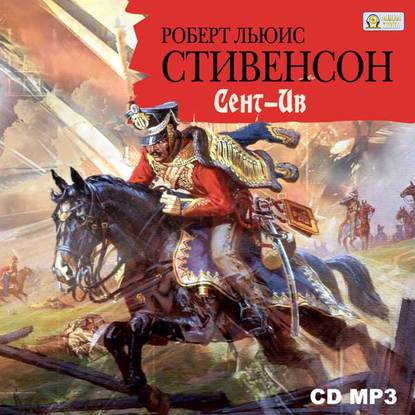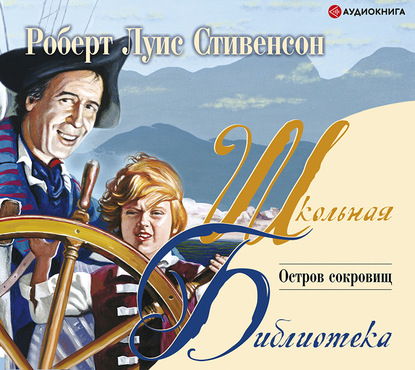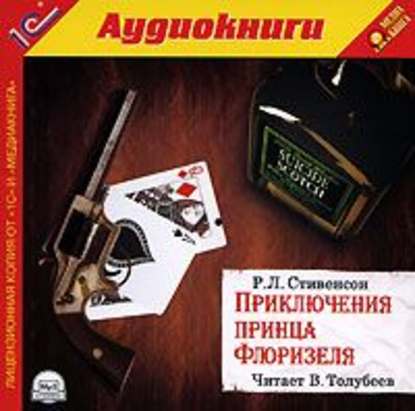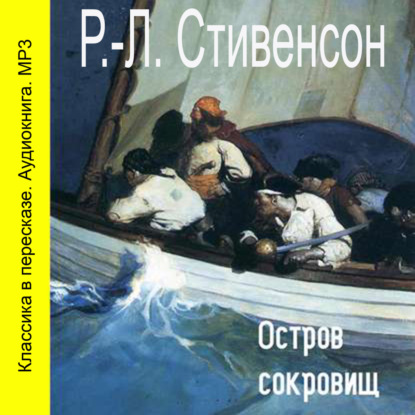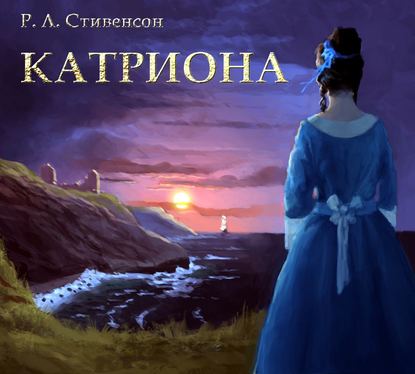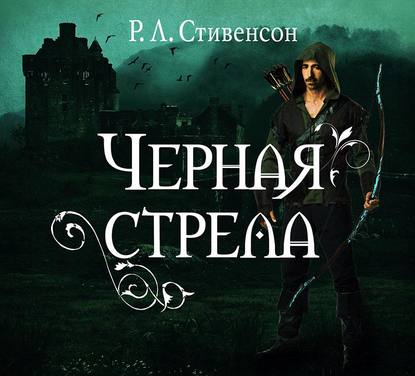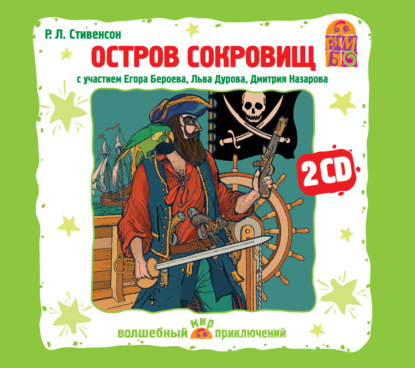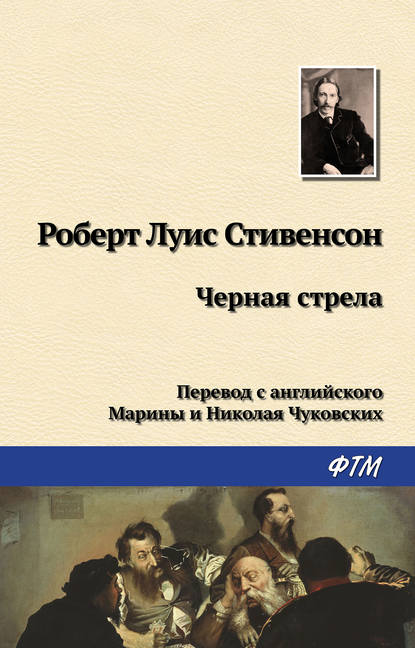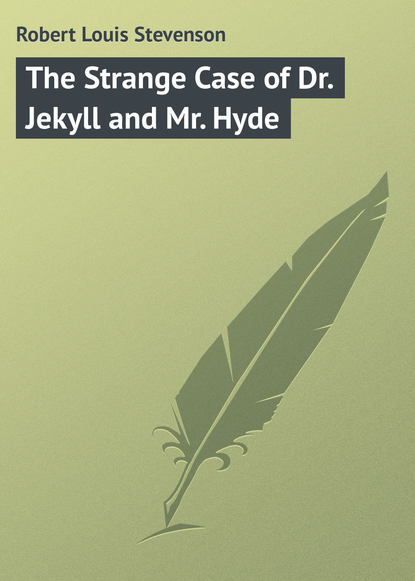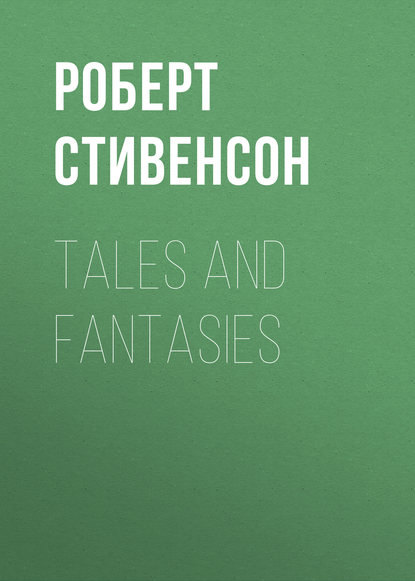
Полная версия
Tales and Fantasies
The night had come; the fanlight over the door shone bright; the two windows of the dining-room where the cloth was being laid, and the three windows of the drawing-room where Maria would be waiting dinner, glowed softlier through yellow blinds. It was like a vision of the past. All this time of his absence life had gone forward with an equal foot, and the fires and the gas had been lighted, and the meals spread, at the accustomed hours. At the accustomed hour, too, the bell had sounded thrice to call the family to worship. And at the thought, a pang of regret for his demerit seized him; he remembered the things that were good and that he had neglected, and the things that were evil and that he had loved; and it was with a prayer upon his lips that he mounted the steps and thrust the key into the key-hole.
He stepped into the lighted hall, shut the door softly behind him, and stood there fixed in wonder. No surprise of strangeness could equal the surprise of that complete familiarity. There was the bust of Chalmers near the stair-railings, there was the clothes-brush in the accustomed place; and there, on the hat-stand, hung hats and coats that must surely be the same as he remembered. Ten years dropped from his life, as a pin may slip between the fingers; and the ocean and the mountains, and the mines, and crowded marts and mingled races of San Francisco, and his own fortune and his own disgrace, became, for that one moment, the figures of a dream that was over.
He took off his hat, and moved mechanically toward the stand; and there he found a small change that was a great one to him. The pin that had been his from boyhood, where he had flung his balmoral when he loitered home from the Academy, and his first hat when he came briskly back from college or the office – his pin was occupied. ‘They might have at least respected my pin!’ he thought, and he was moved as by a slight, and began at once to recollect that he was here an interloper, in a strange house, which he had entered almost by a burglary, and where at any moment he might be scandalously challenged.
He moved at once, his hat still in his hand, to the door of his father’s room, opened it, and entered. Mr. Nicholson sat in the same place and posture as on that last Sunday morning; only he was older, and greyer, and sterner; and as he now glanced up and caught the eye of his son, a strange commotion and a dark flush sprung into his face.
‘Father,’ said John, steadily, and even cheerfully, for this was a moment against which he was long ago prepared, ‘father, here I am, and here is the money that I took from you. I have come back to ask your forgiveness, and to stay Christmas with you and the children.’
‘Keep your money,’ said the father, ‘and go!’
‘Father!’ cried John; ‘for God’s sake don’t receive me this way. I’ve come for – ’
‘Understand me,’ interrupted Mr. Nicholson; ‘you are no son of mine; and in the sight of God, I wash my hands of you. One last thing I will tell you; one warning I will give you; all is discovered, and you are being hunted for your crimes; if you are still at large it is thanks to me; but I have done all that I mean to do; and from this time forth I would not raise one finger – not one finger – to save you from the gallows! And now,’ with a low voice of absolute authority, and a single weighty gesture of the finger, ‘and now – go!’
CHAPTER VI – THE HOUSE AT MURRAYFIELD
How John passed the evening, in what windy confusion of mind, in what squalls of anger and lulls of sick collapse, in what pacing of streets and plunging into public-houses, it would profit little to relate. His misery, if it were not progressive, yet tended in no way to diminish; for in proportion as grief and indignation abated, fear began to take their place. At first, his father’s menacing words lay by in some safe drawer of memory, biding their hour. At first, John was all thwarted affection and blighted hope; next bludgeoned vanity raised its head again, with twenty mortal gashes: and the father was disowned even as he had disowned the son. What was this regular course of life, that John should have admired it? what were these clock-work virtues, from which love was absent? Kindness was the test, kindness the aim and soul; and judged by such a standard, the discarded prodigal – now rapidly drowning his sorrows and his reason in successive drams – was a creature of a lovelier morality than his self-righteous father. Yes, he was the better man; he felt it, glowed with the consciousness, and entering a public-house at the corner of Howard Place (whither he had somehow wandered) he pledged his own virtues in a glass – perhaps the fourth since his dismissal. Of that he knew nothing, keeping no account of what he did or where he went; and in the general crashing hurry of his nerves, unconscious of the approach of intoxication. Indeed, it is a question whether he were really growing intoxicated, or whether at first the spirits did not even sober him. For it was even as he drained this last glass that his father’s ambiguous and menacing words – popping from their hiding-place in memory – startled him like a hand laid upon his shoulder. ‘Crimes, hunted, the gallows.’ They were ugly words; in the ears of an innocent man, perhaps all the uglier; for if some judicial error were in act against him, who should set a limit to its grossness or to how far it might be pushed? Not John, indeed; he was no believer in the powers of innocence, his cursed experience pointing in quite other ways; and his fears, once wakened, grew with every hour and hunted him about the city streets.
It was, perhaps, nearly nine at night; he had eaten nothing since lunch, he had drunk a good deal, and he was exhausted by emotion, when the thought of Houston came into his head. He turned, not merely to the man as a friend, but to his house as a place of refuge. The danger that threatened him was still so vague that he knew neither what to fear nor where he might expect it; but this much at least seemed undeniable, that a private house was safer than a public inn. Moved by these counsels, he turned at once to the Caledonian Station, passed (not without alarm) into the bright lights of the approach, redeemed his portmanteau from the cloak-room, and was soon whirling in a cab along the Glasgow Road. The change of movement and position, the sight of the lamps twinkling to the rear, and the smell of damp and mould and rotten straw which clung about the vehicle, wrought in him strange alternations of lucidity and mortal giddiness.
‘I have been drinking,’ he discovered; ‘I must go straight to bed, and sleep.’ And he thanked Heaven for the drowsiness that came upon his mind in waves.
From one of these spells he was wakened by the stoppage of the cab; and, getting down, found himself in quite a country road, the last lamp of the suburb shining some way below, and the high walls of a garden rising before him in the dark. The Lodge (as the place was named), stood, indeed, very solitary. To the south it adjoined another house, but standing in so large a garden as to be well out of cry; on all other sides, open fields stretched upward to the woods of Corstorphine Hill, or backward to the dells of Ravelston, or downward toward the valley of the Leith. The effect of seclusion was aided by the great height of the garden walls, which were, indeed, conventual, and, as John had tested in former days, defied the climbing schoolboy. The lamp of the cab threw a gleam upon the door and the not brilliant handle of the bell.
‘Shall I ring for ye?’ said the cabman, who had descended from his perch, and was slapping his chest, for the night was bitter.
‘I wish you would,’ said John, putting his hand to his brow in one of his accesses of giddiness.
The man pulled at the handle, and the clanking of the bell replied from further in the garden; twice and thrice he did it, with sufficient intervals; in the great frosty silence of the night the sounds fell sharp and small.
‘Does he expect ye?’ asked the driver, with that manner of familiar interest that well became his port-wine face; and when John had told him no, ‘Well, then,’ said the cabman, ‘if ye’ll tak’ my advice of it, we’ll just gang back. And that’s disinterested, mind ye, for my stables are in the Glesgie Road.’
‘The servants must hear,’ said John.
‘Hout!’ said the driver. ‘He keeps no servants here, man. They’re a’ in the town house; I drive him often; it’s just a kind of a hermitage, this.’
‘Give me the bell,’ said John; and he plucked at it like a man desperate.
The clamour had not yet subsided before they heard steps upon the gravel, and a voice of singular nervous irritability cried to them through the door, ‘Who are you, and what do you want?’
‘Alan,’ said John, ‘it’s me – it’s Fatty – John, you know. I’m just come home, and I’ve come to stay with you.’
There was no reply for a moment, and then the door was opened.
‘Get the portmanteau down,’ said John to the driver.
‘Do nothing of the kind,’ said Alan; and then to John, ‘Come in here a moment. I want to speak to you.’
John entered the garden, and the door was closed behind him. A candle stood on the gravel walk, winking a little in the draughts; it threw inconstant sparkles on the clumped holly, struck the light and darkness to and fro like a veil on Alan’s features, and sent his shadow hovering behind him. All beyond was inscrutable; and John’s dizzy brain rocked with the shadow. Yet even so, it struck him that Alan was pale, and his voice, when he spoke, unnatural.
‘What brings you here to-night?’ he began. ‘I don’t want, God knows, to seem unfriendly; but I cannot take you in, Nicholson; I cannot do it.’
‘Alan,’ said John, ‘you’ve just got to! You don’t know the mess I’m in; the governor’s turned me out, and I daren’t show my face in an inn, because they’re down on me for murder or something!’
‘For what?’ cried Alan, starting.
‘Murder, I believe,’ says John.
‘Murder!’ repeated Alan, and passed his hand over his eyes. ‘What was that you were saying?’ he asked again.
‘That they were down on me,’ said John. ‘I’m accused of murder, by what I can make out; and I’ve really had a dreadful day of it, Alan, and I can’t sleep on the roadside on a night like this – at least, not with a portmanteau,’ he pleaded.
‘Hush!’ said Alan, with his head on one side; and then, ‘Did you hear nothing?’ he asked.
‘No,’ said John, thrilling, he knew not why, with communicated terror. ‘No, I heard nothing; why?’ And then, as there was no answer, he reverted to his pleading: ‘But I say, Alan, you’ve just got to take me in. I’ll go right away to bed if you have anything to do. I seem to have been drinking; I was that knocked over. I wouldn’t turn you away, Alan, if you were down on your luck.’
‘No?’ returned Alan. ‘Neither will you, then. Come and let’s get your portmanteau.’
The cabman was paid, and drove off down the long, lamp-lighted hill, and the two friends stood on the side-walk beside the portmanteau till the last rumble of the wheels had died in silence. It seemed to John as though Alan attached importance to this departure of the cab; and John, who was in no state to criticise, shared profoundly in the feeling.
When the stillness was once more perfect, Alan shouldered the portmanteau, carried it in, and shut and locked the garden door; and then, once more, abstraction seemed to fall upon him, and he stood with his hand on the key, until the cold began to nibble at John’s fingers.
‘Why are we standing here?’ asked John.
‘Eh?’ said Alan, blankly.
‘Why, man, you don’t seem yourself,’ said the other.
‘No, I’m not myself,’ said Alan; and he sat down on the portmanteau and put his face in his hands.
John stood beside him swaying a little, and looking about him at the swaying shadows, the flitting sparkles, and the steady stars overhead, until the windless cold began to touch him through his clothes on the bare skin. Even in his bemused intelligence, wonder began to awake.
‘I say, let’s come on to the house,’ he said at last.
‘Yes, let’s come on to the house,’ repeated Alan.
And he rose at once, reshouldered the portmanteau, and taking the candle in his other hand, moved forward to the Lodge. This was a long, low building, smothered in creepers; and now, except for some chinks of light between the dining-room shutters, it was plunged in darkness and silence.
In the hall Alan lighted another candle, gave it to John, and opened the door of a bedroom.
‘Here,’ said he; ‘go to bed. Don’t mind me, John. You’ll be sorry for me when you know.’
‘Wait a bit,’ returned John; ‘I’ve got so cold with all that standing about. Let’s go into the dining-room a minute. Just one glass to warm me, Alan.’
On the table in the hall stood a glass, and a bottle with a whisky label on a tray. It was plain the bottle had been just opened, for the cork and corkscrew lay beside it.
‘Take that,’ said Alan, passing John the whisky, and then with a certain roughness pushed his friend into the bedroom, and closed the door behind him.
John stood amazed; then he shook the bottle, and, to his further wonder, found it partly empty. Three or four glasses were gone. Alan must have uncorked a bottle of whisky and drank three or four glasses one after the other, without sitting down, for there was no chair, and that in his own cold lobby on this freezing night! It fully explained his eccentricities, John reflected sagely, as he mixed himself a grog. Poor Alan! He was drunk; and what a dreadful thing was drink, and what a slave to it poor Alan was, to drink in this unsociable, uncomfortable fashion! The man who would drink alone, except for health’s sake – as John was now doing – was a man utterly lost. He took the grog out, and felt hazier, but warmer. It was hard work opening the portmanteau and finding his night things; and before he was undressed, the cold had struck home to him once more. ‘Well,’ said he; ‘just a drop more. There’s no sense in getting ill with all this other trouble.’ And presently dreamless slumber buried him.
When John awoke it was day. The low winter sun was already in the heavens, but his watch had stopped, and it was impossible to tell the hour exactly. Ten, he guessed it, and made haste to dress, dismal reflections crowding on his mind. But it was less from terror than from regret that he now suffered; and with his regret there were mingled cutting pangs of penitence. There had fallen upon him a blow, cruel, indeed, but yet only the punishment of old misdoing; and he had rebelled and plunged into fresh sin. The rod had been used to chasten, and he had bit the chastening fingers. His father was right; John had justified him; John was no guest for decent people’s houses, and no fit associate for decent people’s children. And had a broader hint been needed, there was the case of his old friend. John was no drunkard, though he could at times exceed; and the picture of Houston drinking neat spirits at his hall-table struck him with something like disgust. He hung back from meeting his old friend. He could have wished he had not come to him; and yet, even now, where else was he to turn?
These musings occupied him while he dressed, and accompanied him into the lobby of the house. The door stood open on the garden; doubtless, Alan had stepped forth; and John did as he supposed his friend had done. The ground was hard as iron, the frost still rigorous; as he brushed among the hollies, icicles jingled and glittered in their fall; and wherever he went, a volley of eager sparrows followed him. Here were Christmas weather and Christmas morning duly met, to the delight of children. This was the day of reunited families, the day to which he had so long looked forward, thinking to awake in his own bed in Randolph Crescent, reconciled with all men and repeating the footprints of his youth; and here he was alone, pacing the alleys of a wintry garden and filled with penitential thoughts.
And that reminded him: why was he alone? and where was Alan? The thought of the festal morning and the due salutations reawakened his desire for his friend, and he began to call for him by name. As the sound of his voice died away, he was aware of the greatness of the silence that environed him. But for the twittering of the sparrows and the crunching of his own feet upon the frozen snow, the whole windless world of air hung over him entranced, and the stillness weighed upon his mind with a horror of solitude.
Still calling at intervals, but now with a moderated voice, he made the hasty circuit of the garden, and finding neither man nor trace of man in all its evergreen coverts, turned at last to the house. About the house the silence seemed to deepen strangely. The door, indeed, stood open as before; but the windows were still shuttered, the chimneys breathed no stain into the bright air, there sounded abroad none of that low stir (perhaps audible rather to the ear of the spirit than to the ear of the flesh) by which a house announces and betrays its human lodgers. And yet Alan must be there – Alan locked in drunken slumbers, forgetful of the return of day, of the holy season, and of the friend whom he had so coldly received and was now so churlishly neglecting. John’s disgust redoubled at the thought, but hunger was beginning to grow stronger than repulsion, and as a step to breakfast, if nothing else, he must find and arouse this sleeper.
Конец ознакомительного фрагмента.
Текст предоставлен ООО «ЛитРес».
Прочитайте эту книгу целиком, купив полную легальную версию на ЛитРес.
Безопасно оплатить книгу можно банковской картой Visa, MasterCard, Maestro, со счета мобильного телефона, с платежного терминала, в салоне МТС или Связной, через PayPal, WebMoney, Яндекс.Деньги, QIWI Кошелек, бонусными картами или другим удобным Вам способом.



